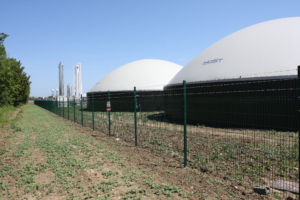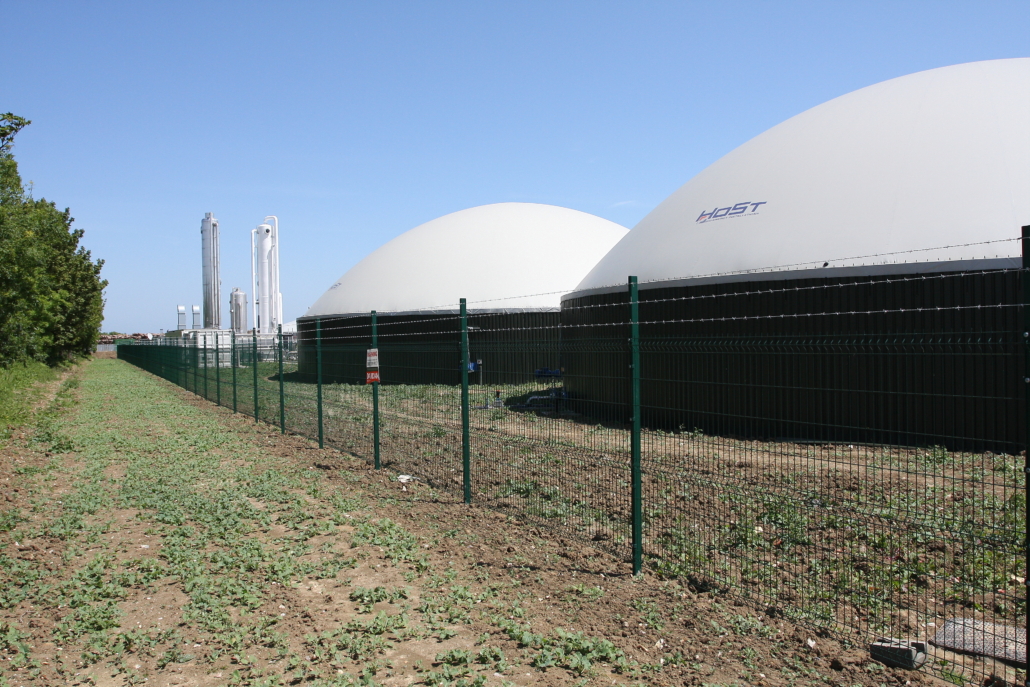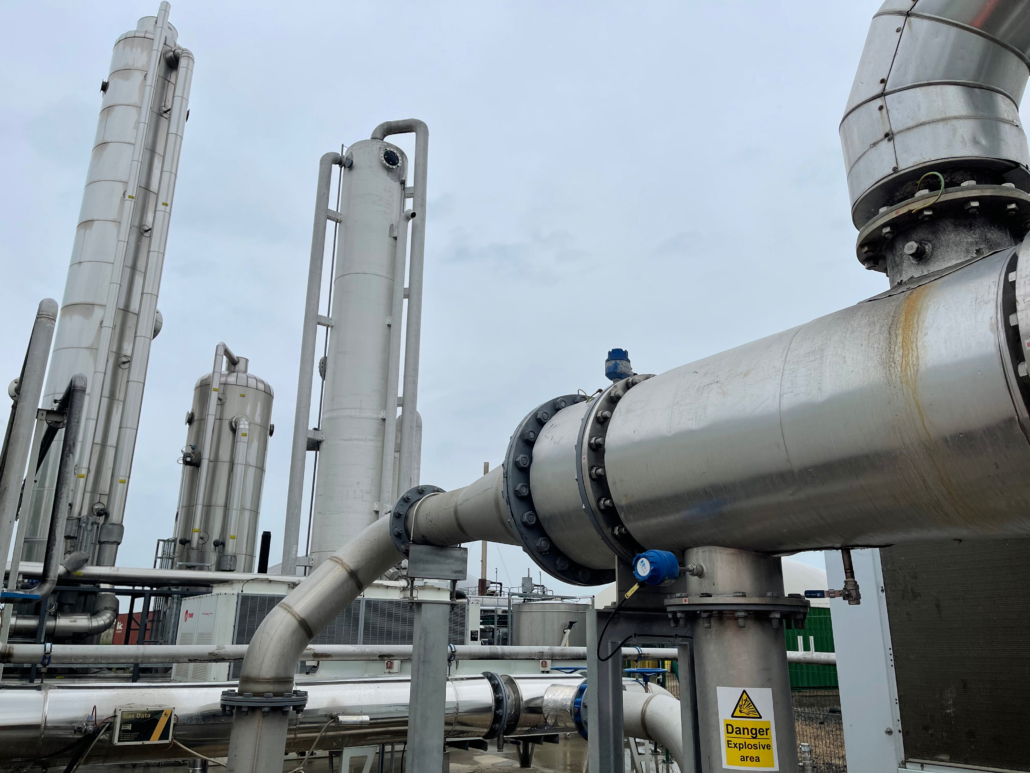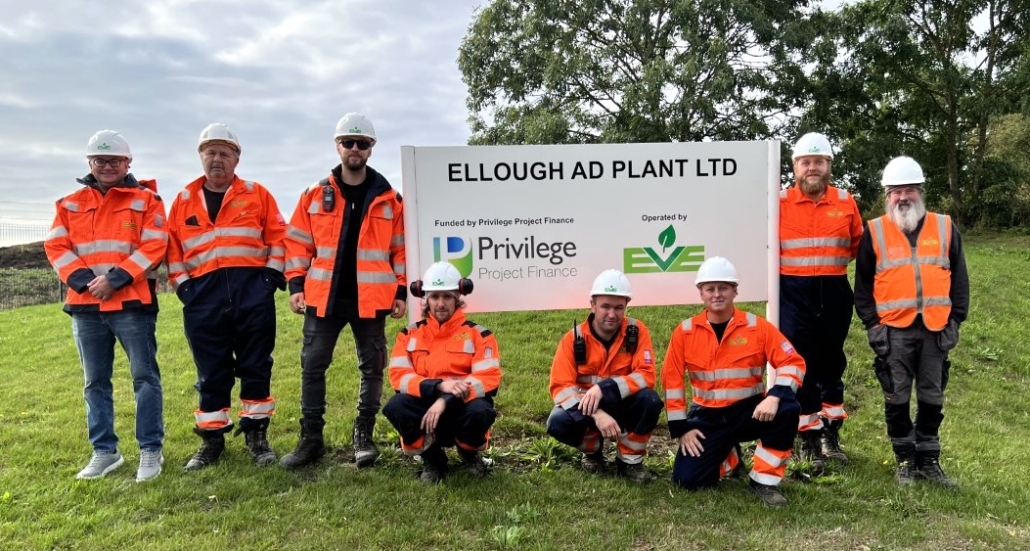Five things to consider when maintaining an AD plant

By Tyler Warman, site manager at Ellough AD
A proactive approach to AD plant maintenance is crucial to prevent unnecessary downtime, which can be extremely costly, especially if it is prolonged due to waiting for critical parts to repair equipment.
As an AD plant is essentially made up of moving parts, it is fair to say that everything is destined to break down eventually. However, implementing the following preventative maintenance strategies can help to avoid huge financial losses.
1. A fully resourced operations team
A sufficiently resourced site operations team is an important prerequisite for moving to a preventative approach to AD plant maintenance. This means having enough operators in the team with the capacity for carrying out preventative maintenance. But it also means ensuring each member of the team has received thorough training, understands their responsibilities and is communicating openly with the rest of the team.
All members of an AD operations team should:
- Be well-versed in what is required of them and why it is important, which is achieved via thorough initial training and being taken through the standard operating procedures
- Be observant – problems are identified early when everyone understands how things should be and take notice of any changes
- Communicate effectively with the rest of the team – flagging issues to colleagues and sharing what actions have been taken to resolve challenges during shift handovers contributes to the smooth operating of the plant and helps prevent potential downtime
2. Pay attention to AD biology
Regular testing of gas quality and the biology within the digestion tanks means problems can be predicted before they affect the overall efficiency of the plant. For example, constant monitoring of tank biology, pH and alkalinity to spot changes or imbalances early allows adjustment of the feeding regimes to suit the needs of digesters and maximise biogas yields.
3. Increase resilience to machinery breakdowns
It is possible to increase a plant’s resilience to breakdowns, by checking equipment manufacturers specifications to understand how to get the most out of the machinery and incorporate the information into maintenance routines. There are a couple of ways to do this.
Thermal imaging
Manufacturers’ specifications include how hot equipment should be when it’s running optimally. Thermal imaging cameras can be used to take pictures of machinery or electrical panels, to locate any potential hotspots. This allows potential electrical and mechanical issues to be identified prior to them resulting in failure. They can then be repaired or replaced as required to avoid downtime.
Vibration analysis
Vibration analysis can also be used to identify when machinery requires maintenance. Most moving machinery will be driven by an electrical or diesel motor, which rotates a shaft sat on bearings. An excessive level of vibration can indicate bearings are failing, or the internal housing which holds the bearings has failed. If bearings fail this can destroy the internal workings of motors and gearboxes, leading to excessive downtime.
Vibration analysis allows us to keep one step ahead through identifying excessive vibration prior to it resulting in breakdowns. Bearing replacement is much more cost effective than replacing an entire unit or dealing with the downtime that ensues.
4. Ensure critical spares are available on-site
A critical spares audit can be carried out to ensure there is a back-up onsite for any item which is critical to the operation of the plant.
Few AD parts are manufactured in the UK, with many coming from Europe, Canada or America. This means the lag time between ordering a part and it arriving on site can be extensive, especially since Brexit and the Ukraine-Russia crisis have disrupted global supply chains. If an AD plant has stopped running while waiting for a critical piece of equipment to carry out a repair, then it will lose profits by the hour.
5. Use OGI analysis to detect gas leaks
Optical gas imaging (OGI) can be used to ensure there are no leaks in pipework and tanks are sealed correctly. Gas-tight systems are important from a profit margin point of view, but also from environmental and safety perspectives, as leaked gas is a type of pollution, and can present a risk to the operators or any visitors on-site.
Proactive AD plant maintenance has proved instrumental in sustained optimisation of outputs at Ellough AD in Suffolk. The team’s approach to pre-empting any issues which could lead to downtime has resulted in the 12MW plant achieving a 97% average output over the last four months.
To find out about EVE’s maintenance consultancy and advisory services get in touch with the team today.





